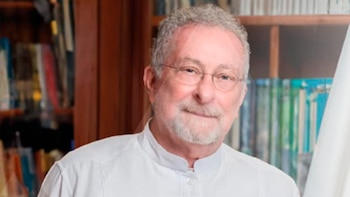
Beds are Burning is a classic by the Australian band Midnight Oil. Its lyrics, with an unmistakable social content, were the ideal condiment for one of the most powerful ideological expressions that, to their regret, witnessed by the Olympic movement of the 21st century. The performance of the boys led by the impressive Peter Garrett at the closing ceremony of the Sydney 2000 games added to the message of the theme (“How can we dance while our beds are burning?”) a unique reference in their clothing. What did that “sorry” message on the chest of the black divers worn by each of its members refer to.
It clearly referred to an apology to members of the Australian indigenous peoples, including the inhabitants of the Torres Islands, an archipelago of more than 270 islands that was at the time one of the main references to historical conflicts between that country’s governments and the aborigines. This was not exactly the closing of the party dreamed of by lovers of the aseptic protocols so common in these celebrations. What’s more, there was even the paradox that those who executed this supposed slip were members of a band that joined the celebration as the second choice of The Seekers, a local band whose leader suffered an accident weeks before the games.
However, this was not the only high-impact reference in that impressive Australian celebration because, it must be said and beyond any ideological discussion, those games were the best in history in all aspects, starting with the opening and closing parties.
For much of September 16, the first day of competition, local television couldn’t help but reiterate the magical images of the lighting of the Olympic cauldron. It is impossible to discover how the enormous local athlete Cathy Freeman had been able to carry the burning torch at the foot of the long final journey of the sacred fire without that fire going out or getting wet herself under a kind of artificial waterfall whose visual effect was innovative and fascinating.

Not even at the end of the first day, with the enormous impact of the two gold medals with two world records achieved by the host country (double for Ian Thorpe, 17, in 400 freestyle and 4×100), were we able to archive the images of the opening in the folder of immediate memories.
A week later, other images of Freeman became an incessant loop for the Australian celebration.
Olympic runner-up in Atlanta and two-time world champion in the 400 meters in 1997 and 1999, Freeman faced the games under enormous pressure to take revenge on France’s Marie-Josee Perec, champion four years earlier on North American soil. Shortly after the games started, a crowd of journalists rushed to Sydney airport: surprisingly, Perec decided to leave the country and withdraw from the race. She vaguely argued that she had been threatened by an amateur outside the hotel where she stayed. The main suspicion was simply a poor athletic condition to face the commitment.
Beyond this unexpected news, the test itself generated an unprecedented impact because no North American athlete reached the semifinals, a situation so strange and uncommon for the distance that those same athletes, days later, won the title in the relay.
Freeman won one of the most popular titles in the competition, not without mystery because, even having entered the final stretch, she was slow to displace her rivals from Jamaica and Great Britain, who completed the podium.
Two clips from local television remained indelible in my memory. One, that of the career and the subsequent celebrations with its people -mom included- and in the background the song Coz I’m Free, by Cristine Anu (“I’m faster than a shadow”). The other, the development of the test with Bruce McAvaney’s epic story that ends with an unforgettable “What a legend... what a champion”.
Beyond some controversies with references from the native peoples of which Cathy is also a part, the athlete took advantage of that victory to, even with Olympic prudence, make visible the claims of legitimacy.
Her triumphant journey along the Olympic Stadium track wearing the flags of both Australia and that of the land of her ancestors around her neck was a foretaste of a commitment to solidarity that still endures.
Últimas Noticias
Sinner-Alcaraz, the duel that came to succeed the three phenomenons
Beyond the final result, Roland Garros left the feeling that the Italian and the Spaniard will shape the great duel that came to help us through the duel for the end of the Federer-Nadal-Djokovic era.
Table tennis: Brazil’s Bruna Costa Alexandre will be Olympic and Paralympic in Paris 2024
She is the third in her sport and the seventh athlete to achieve it in the same edition; in Santiago 2023 she was the first athlete with disabilities to compete at the Pan American level and won a medal.

Rugby 7s: the best player of 2023 would only play the medal match in Paris
Argentinian Rodrigo Isgró received a five-game suspension for an indiscipline in the circuit’s decisive clash that would exclude him until the final or the bronze match; the Federation will seek to make the appeal successful.

Rhonex Kipruto, owner of the world record for the 10000 meters on the road, was suspended for six years
The Kenyan received the maximum sanction for irregularities in his biological passport and the Court considered that he was part of a system of “deliberate and sophisticated doping” to improve his performance. He will lose his record and the bronze medal at the Doha World Cup.

Katie Ledecky spoke about doping Chinese swimmers: “It’s difficult to go to Paris knowing that we’re going to compete with some of these athletes”
The American, a seven-time Olympic champion, referred to the case of the 23 positive controls before the Tokyo Games that were announced a few weeks ago and shook the swimming world. “I think our faith in some of the systems is at an all-time low,” he said.





